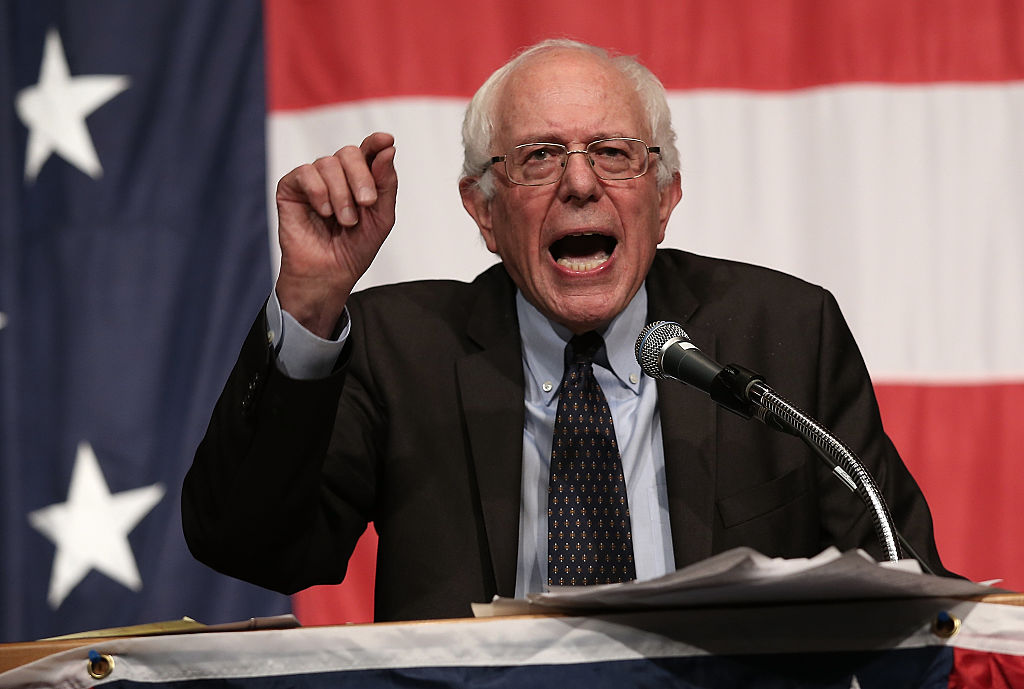Bernie Sanders has lost Vermont


Eventually these starry-eyed bohemians would grow up, start businesses and buy houses. Politics became pragmatic as the Progressive Party replaced New Left radical movements such as the Liberty Union. Sanders’s former comrades in the Liberty Union would go on to disavow him in 1999 as a “bomber”, “imperialist” and “sell-out” over his supposed support of Nato’s intervention in Yugoslavia. At one point, they even occupied his Burlington congressional office. But it wasn’t enough to stop the rise of Vermont’s new Progressive nobility.
From Burlington I head to the small farming town of Hinesburg. When I arrive, Vermont’s Progressive Lieutenant Governor, David Zuckerman, picks me up in a rundown car he uses for farming organic chickens, pigs and CBD. Zuckerman has known Sanders since the Nineties, and the two are cut from the same cloth: like Sanders, Zuckerman is a Vermont expat hailing from the Boston suburbs; a progressive, but also a pragmatic, straight-talking social democrat. You can see glimmers of Vermont’s old New Left libertarian ethos in his opposition to mandatory government vaccination among other things. And there is talk that he might one day succeed Sanders as a Vermont senator.
For now, Zuckerman believes Vermont’s communities haven’t yet been ruined by polarisation. “People are respectful to their neighbours,” he tells me. “It’s still a value, because you might go off the road in the middle of the night in a snowstorm. Everyone’s going to help — it doesn’t matter what bumper stickers are on your car. Compared to the rest of the country, it’s a strong ethic.” Yet, Zuckerman admits that this compact between Vermonters is less strong than it was decades ago.
Perhaps the state of local politics in New England explains this relative harmony. Where national politics divides the state, respect for local democracy unites it. I’ve arrived on Town Meeting Day, an annual event where townsfolk come together to debate and vote on local issues. It’s a New England tradition dating to the colonial era: for 24 hours, ordinary voters turn into legislators and scrutinise the town budget. These small, rural community meetings have “empowered us to demand authenticity in our relationship with leaders”, says Susan Clark, a writer on Vermont politics and co-author of Slow Democracy: Rediscovering Community, Bringing Decision Making Back Home.
The stubbornness and eccentricity of Vermonters is on full display at the meeting. Citizens vote on everything from fire trucks to pavements. One woman stands up several times and asks: “Why do we need four snow ploughs and seven cops? We can do with two ploughs and five cops.” The officials chairing the debate provide justifications for the numbers, and the woman blankly refuses to concede her point. Between votes, the chair of the meeting mills around and chats with residents about Donald Trump and the dangers of the next presidential election.
The gap between politicians and the citizenry feels smaller here than elsewhere, with retirees and young police officers stopping to chat with, or lambast, Zuckerman about small-town and global issues alike. Here, political conversation is often infused with wider American anxieties about class, power and economics. The culture war is never far away.
By contrast, Town Meeting Day in Burlington is a lethargic affair. There is the odd road sign and a dozen picketers huddled against the rain. The people I stop in the street are apathetic, shrugging me off while muttering “they’re all the same, aren’t they?” The political energy of Hinesburg appears to have dissipated in the city. All the Progressive Party activists I talk to seem quietly dispirited: it was only four years ago that their candidate was poised to take the White House.
